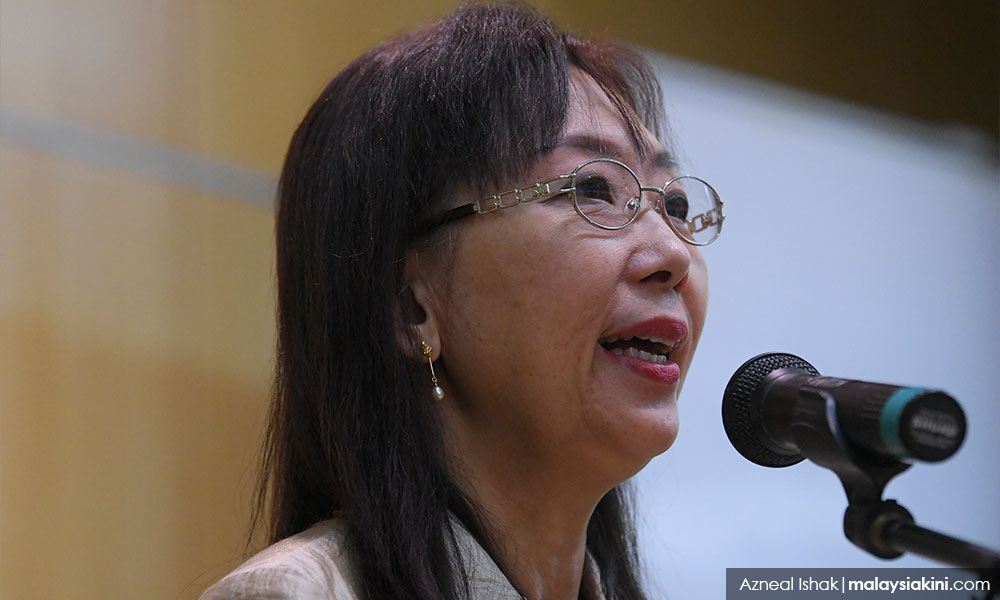
Primary Industries Minister Teresa Kok today expressed her disappointment over negative palm oil sentiments having also taken root in Singapore.
Citing an example, she said the Singapore Zoo had on several occasions created sensationalised displays on palm oil and deforestation at its orang utan enclosure.
This, according to her, damaged the image of palm oil producing countries within the region, despite progressive efforts towards sustainability and wildlife conservation.
"In this case, the Singapore Zoo acted possibly in haste and reflected emotions expressed by many ill-informed visitors," she said in her keynote address on “Connecting Markets, Forging Consensus: Partnerships for Sustainable Palm Oil” at the 6th Singapore Dialogue on Sustainable World Resources, in Singapore today.
"On that note, ideally in the interest of Asean solidarity, we must be supportive of one another, especially when matters are fact-based and illustrated in a transparent manner," Kok said.
Kok highlighted that if European Union countries can stand united on assumptions of unsustainable production and consumption of palm oil and other forest-based products, “we as Asean should stand tall to fight against those unfair and discriminative judgements made by them.”
Also present were Singapore Environment and Water Resources Minister, Masagos Zulkifli and chairperson of the Singapore Institute of International Affairs, associate professor Simon Tay.
In a quick response to Kok’s remark, Tay who is also the moderator of the dialogue assured that he “would pick up the phone and talk to the Singapore Zoo” which garnered a round of applause from the audience.
In line with this dialogue’s theme, “Asean’s Pathway To Sustainability: Targets For 2020 And Beyond”, Kok believed that a close partnership among Asean members in asserting the pact as an influential economic caucus and ranked among the largest exporting economies, “is extremely important.”
“It is a known fact that commodities produced by the Aseanregion such as palm and coconut oils, rubber and timber are traded and exported throughout the world. Both producers and traders, including those Singapore-based, benefit from this arrangement,” she said.
The minister was aware that these days, the trade in palm oil is heavily targeted by non-governmental organisations (NGOs) and the consumer backlash created by a global network of anti-palm oil campaigns, was extremely provocative and belittling for Malaysia, as a producer nation.
“A significant portion of such activity is being funded by our competitors as well,” she said.
Kok noted that there was relentless accusation of deforestation, wildlife destruction, social injustices to the plantation workforce, and stigmatisation against palm oil from its nutrition and health perspectives.
“I dare say that there has also been an active anti-palm agenda from Singapore itself and sometimes even supported to some extent by policies prescribed by some agencies here,” she said.
However, Kok said Malaysia’s battlefront, is mostly Europe-centred.
She said for instance, new or pending legislations by importing countries, including the the EU’s Delegated Act against palm biofuels and the California Deforestation-Free Procurement Bill, are examples that put significant pressure on palm oil and also on products sourced from forest-associated commodities.
Kok stressed that Malaysia has been a strong proponent of forest management.
“Since the pledge at the Rio Earth Summit in 1992, we have retained about 54.8 per cent of Malaysia’s total land area under forest cover based on 2017 figures, but the world often finds this difficult to assimilate.
“We are the second largest producer of palm oil. If you are a palm oil producer you must be a maniac running around with a chainsaw and cutting 50 football field equivalents of forests each day. Such narratives are common and yet intellectuals, perhaps even in this room, believe such absurdity.
“The truth is, we cultivate a total of 5.85 million hectares under oil palm. One major policy shift adopted by the Pakatan Harapan government recently is to cap the expansion of oil palm plantations at 6.5 million hectares, which we expect to achieve by 2023,” she said.
Kok said Malaysia’s focus now was to utilise higher yielding planting materials and increasing productivity without the need to expand into new forests or peatlands.
“This means we can progressively achieve oil yields from the current four metric tonnes per hectare, which is already four to 10 times higher than all other oilseeds, to at least six to eight metric tonnes per hectare,” she added.
- Bernama


No comments:
Post a Comment
Note: Only a member of this blog may post a comment.